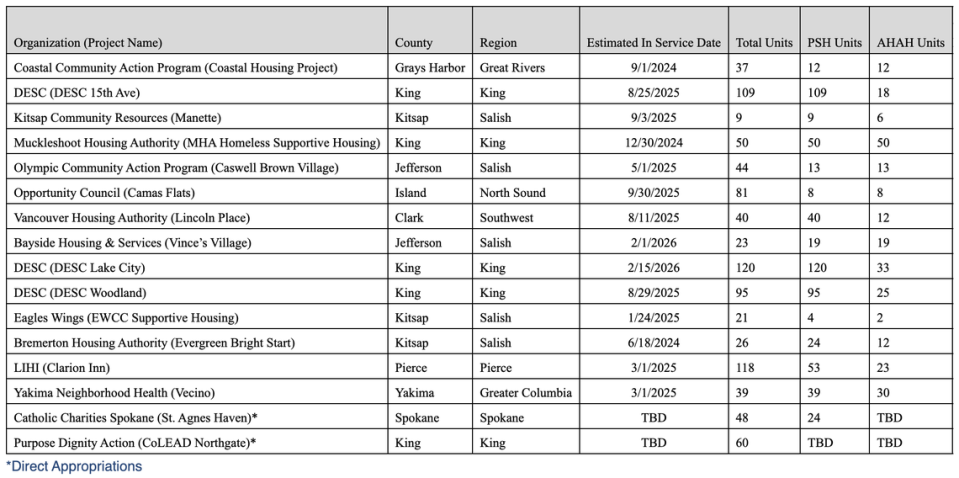Motel to medical-respite center? Here’s what we know about Tacoma Mall Boulevard project
Story has been updated with additional details.
A regional housing advocacy agency is behind a proposal to convert a motel near Interstate 5 in South Tacoma to a shelter that would include medical respite for those in need.
Seattle-based Low Income Housing Institute is listed as the applicant in initial pre-application paperwork filed in May with the City of Tacoma regarding converting the former Clarion Inn, now Oasis Inn, 6802 Tacoma Mall Blvd., next to southbound I-5.
In May, The News Tribune reported on a pre-application filed with the city to convert the motel for residential use. A records request by The News Tribune for further details from the city showed LIHI’s involvement.
Amid news of the proposal, the site’s owner on Tuesday made clear to The News Tribune that the property is still operating as a hotel and that the deal is not yet finalized, and anyone seeking assistance now should contact LIHI, not the hotel property.
Details from the pre-app list permanent supportive housing units along with “emergency shelter rooms (non-transient), resident service spaces, caseworker and housing support staff offices and common residential amenity areas.”
It also says a former hotel kitchen “will be retained as a non-commercial catering and staging kitchen.”
Sharon Lee is founding executive director of LIHI. In a recent phone interview with The News Tribune, she said that LIHI had been considering the property since last year.
“We want to dedicate part of the rooms to people who are frail, and who need housing and need some medical help,” she said.
“You can’t just put them in a unit and wish them well,” she added, offering as examples people recovering from an operation or those in need of wound care.
“They need some supportive services,” she said.
Apple Health and Homes Program
The site would operate as part of the state’s Apple Health and Homes Program, which matches healthcare services with housing resources. Established in 2022, the initiative “aligns housing resources (capital financing and rental/operations assistance) with supportive services through the Health Care Authority’s Foundational Community Supports program,” according to the state Department of Commerce.
The program aims to provide “capital financing for the rapid acquisition or construction of housing that is, at least in part, dedicated to a subset of individuals enrolled in or eligible” for Foundational Community Supports, the department said in describing the program.
Foundational Community Supports is the Medicaid services portion of the program, overseen by HCA.
The 2022 Legislature appropriated $60 million for the purchase/construction side of the program. Last June, Commerce announced it had awarded $41.4 million across seven projects to create 122 housing units for those eligible for Foundational Community Supports.
Commerce to date has invested 14 capital awards in a competitive funding process for AHAH-tied properties, with the LIHI project the sole one in Pierce County among those. Units for those eligible for Foundational Community Supports in the AHAH program have grown from 122 to a total of 263.
Beyond Pierce, other sites on Commerce’s list include projects in King, Kitsap, Grays Harbor, Jefferson, Island, Clark and Yakima counties. Two additional sites, one in King County and the other in Spokane County, received direct appropriations, with AHAH units still to be determined at those sites.

HCA/Commerce’s next report on the program is due in December, similar to the report issued in December 2023.
What will be available at site
Lee offered details on services that could be offered at the site depending on short term vs. long term respite care.
Short term would apply to those recovering from surgery or a procedure such as amputation.
“There’s no point in them staying in a hospital — the most expensive place to stay,” she noted.
The other type of medical respite service would cater to those needing long-term care — patients requiring assistance from a visiting nurse or health care professional, for example, she said.
The rest of the rooms would be permanent supportive housing, she added, as well as rooms made available for those needing short-term shelter “while the case manager works with them to find long-term housing.”
The site would be staffed around the clock, with social workers and case managers, she noted, as well as space for physical therapy/exercise.
She added, “We we want people to maintain their physical strength and improve their health.”
County tax records list the two-story, 1969-era property with 128 units and an assessed value of just over $11 million. If all goes according to plan, Lee hopes the site can continue to operate in its current hotel form as the conversion to a shelter occurs in stages, with shelter operations starting possibly by the end of next year.
Conversion will mean more than just opening the rooms to individuals in need, Lee noted.
The onsite pool, for example, would be filled in and turned into a community garden, she said. An on-site kitchen will serve residents, and an elevator will be added.
“I was aware of this hotel for quite a while and we really liked the location, and we think it’s very accessible,” Lee said. “The problem that I saw with it was that it didn’t have an elevator to the second floor. ... So we’ll be installing an elevator.”


